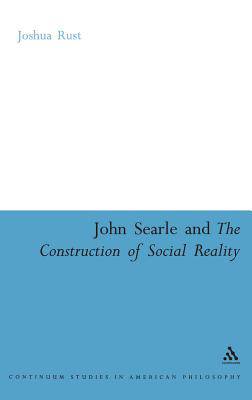
- Afhalen na 1 uur in een winkel met voorraad
- Gratis thuislevering in België vanaf € 30
- Ruim aanbod met 7 miljoen producten
- Afhalen na 1 uur in een winkel met voorraad
- Gratis thuislevering in België vanaf € 30
- Ruim aanbod met 7 miljoen producten
Zoeken
Omschrijving
John Searle (1932-) is one of the most famous living American philosophers. A pupil of J. L. Austin at Oxford in the 1950s, he is currently Mills Professor of the Philosophy of Mind and Language at the University of California, Berkeley. In 1995 John Searle published The Construction of Social Reality, a text which not only promises to disclose the institutional backdrop against which speech takes place, but initiate a new 'philosophy of society'. Since then The Construction of Social Reality has been subject to a flurry of criticism. While many of Searle's interlocutors share the sense that the text marks an important breakthrough, he has time and again accused critics of misunderstanding his claims. Despite Searle's characteristic crispness and clarity there remains some confusion, among both philosophers and sociologists, regarding the significance of his proposals.
Specificaties
Betrokkenen
- Auteur(s):
- Uitgeverij:
Inhoud
- Aantal bladzijden:
- 224
- Taal:
- Engels
- Reeks:
- Reeksnummer:
- nr. 11
Eigenschappen
- Productcode (EAN):
- 9780826485861
- Verschijningsdatum:
- 25/01/2006
- Uitvoering:
- Hardcover
- Formaat:
- Genaaid
- Afmetingen:
- 157 mm x 241 mm
- Gewicht:
- 467 g

Alleen bij Standaard Boekhandel
+ 780 punten op je klantenkaart van Standaard Boekhandel
Beoordelingen
We publiceren alleen reviews die voldoen aan de voorwaarden voor reviews. Bekijk onze voorwaarden voor reviews.











